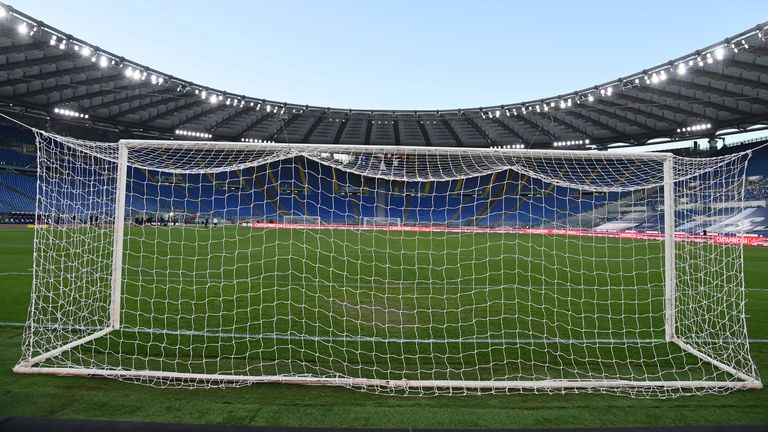Euro 2020: Why England fans can’t travel to Italy for quarter-final against Ukraine
As England prepare to play Ukraine in the Euro 2020 quarter-finals in Rome on Saturday, Sky Sports News’ chief reporter Bryan Swanson looks at why travelling fans will not be welcome.
Why is Italy a ‘no-go’ for travelling England fans?
Since June 21, Italy imposed stricter quarantine measures for anyone arriving into the country from the UK. If anyone has been in the UK in the previous 14 days, they must self-isolate for five days before producing a negative test on release.
The Foreign, Commonwealth and Development Office [FCDO] advises against all but essential travel to the whole of Italy, including Rome, and anyone who has been in the country must self-isolate on their return to the UK, as it remains on the ‘Amber list’.
As the quarter-final takes place on Saturday, fans have no time to quarantine and still be able to attend the game, even if they are negative.
Trending
Can fans travel from the UK to another country first and get into Italy without quarantining?
Even if fans travel to a country with more relaxed quarantine measures in the first instance, before travelling to Italy, the authorities want proof of all previous destinations in the past 14 days.
- Euros podcast: Why England’s QF is bigger than Germany
- Carra: England favourites | Kane must kick on
- Hits and misses: England expects, time for Germany change
If anyone has been in the UK in the previous 14 days, they must self-isolate for five days in Italy before producing a negative test on release.
However, those transiting through Italy as part of their journey are exempt from the isolation period – so long as they have left Italy within 36 hours – as are EU officials, diplomats and international students returning to study.
If supporters do make it to Italy, getting a ticket to the game will also be a challenge, as the Football Association has said it will not be selling tickets for the match to the England Supporters Travel Club due to restrictions.
What if England fans live in Italy?
This offers the best opportunity to attend the game.
According to the FCDO, there are currently no “orange” or “red” regions but moving to and from “orange” and “red” regions will only be permitted for residents holding a “green certificate” confirming that they have been fully vaccinated against, or have recovered from, Covid-19.
It is also possible to obtain a “green certificate” valid for 48 hours after testing negative to antigen or molecular swab tests. Anyone falsifying a certificate is liable to face a fine of up to £2,500 (€3,000) or a prison sentence.
The FA is expected to provide further clarification on ticket availability for expats in Italy.
Is the British Embassy in Rome selling tickets?
No. The FCDO say they are aware of ‘incorrect reports in the media stating that tickets for Euro 2020 can be obtained at your local Embassy’. They have confirmed to Sky News that ‘neither the British Embassy nor any part of Her Majesty´s Government are selling tickets for the match’.
How do the restrictions affect the England players?
The England national team, along with other accredited UEFA competition personnel, are granted exemptions from quarantine restrictions on arrival into Italy and other Euro 2020 host cities. As they operate within a ‘bubble’, and provide regular tests, they are not required to self-isolate.
The team is scheduled to arrive in Rome on Friday, the day before the game, and leave the country immediately after the match.
What about Ukraine fans?
Ukraine currently falls under Italy’s List E. Therefore, fans will not be permitted to travel to Rome for the match from their home country, with non-essential travel from Ukraine to Italy not currently permitted due to coronavirus restrictions.
Travel from List E countries is only permitted for ‘work, health reasons, study reasons, absolute urgency and/or a return to one’s home or residence’.
A Ukraine supporter who travels from the UK must quarantine for five days on arrival into Italy.
Source: Read Full Article


